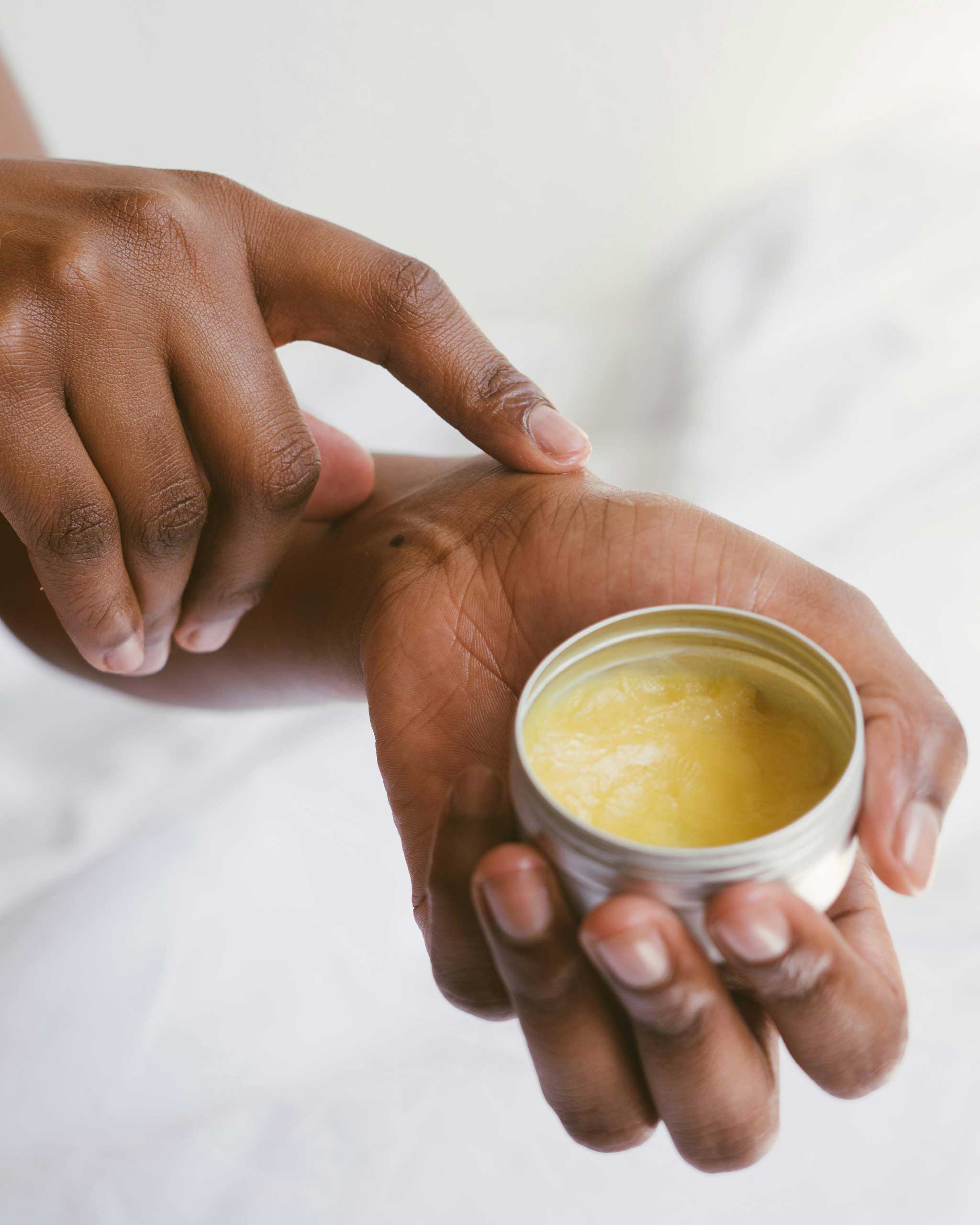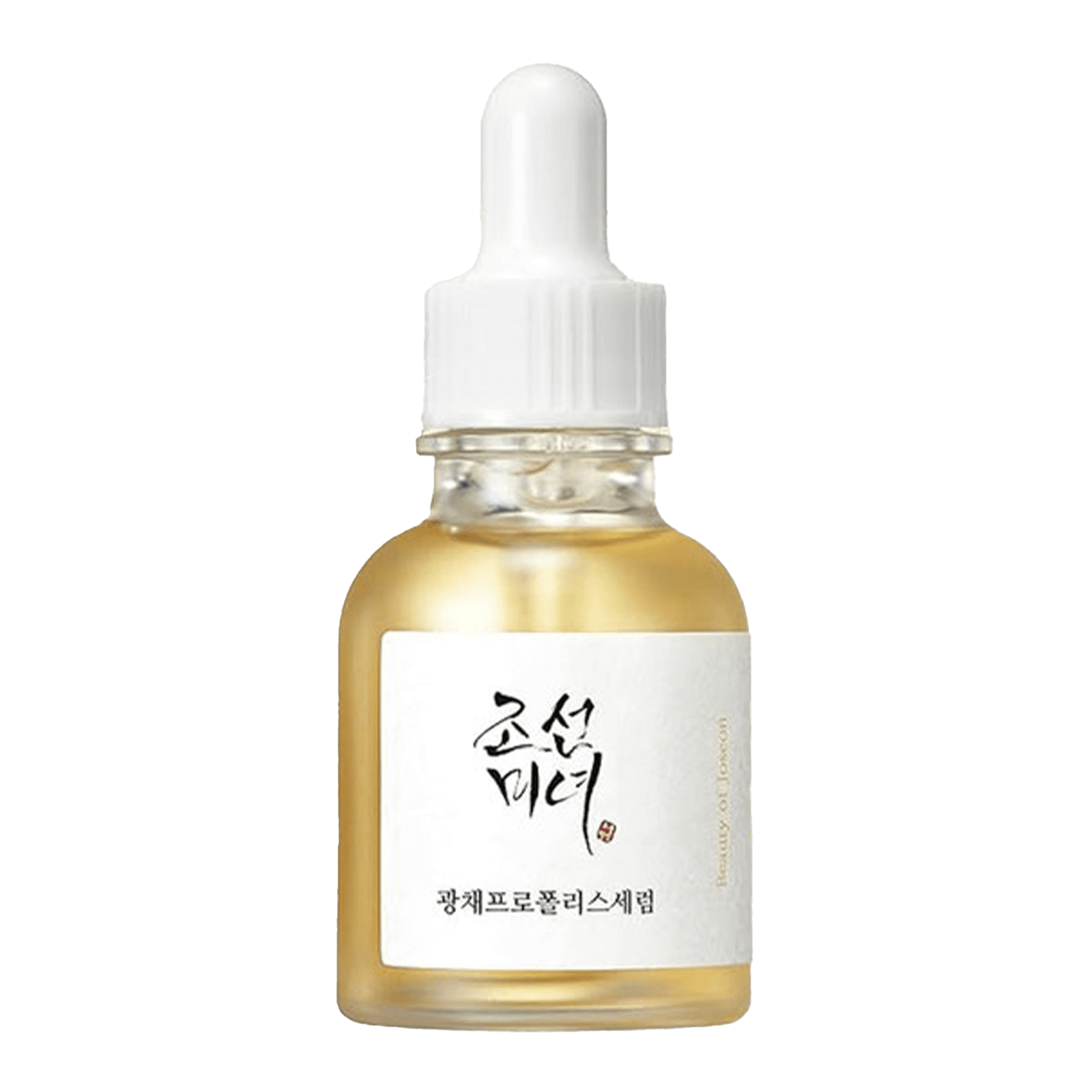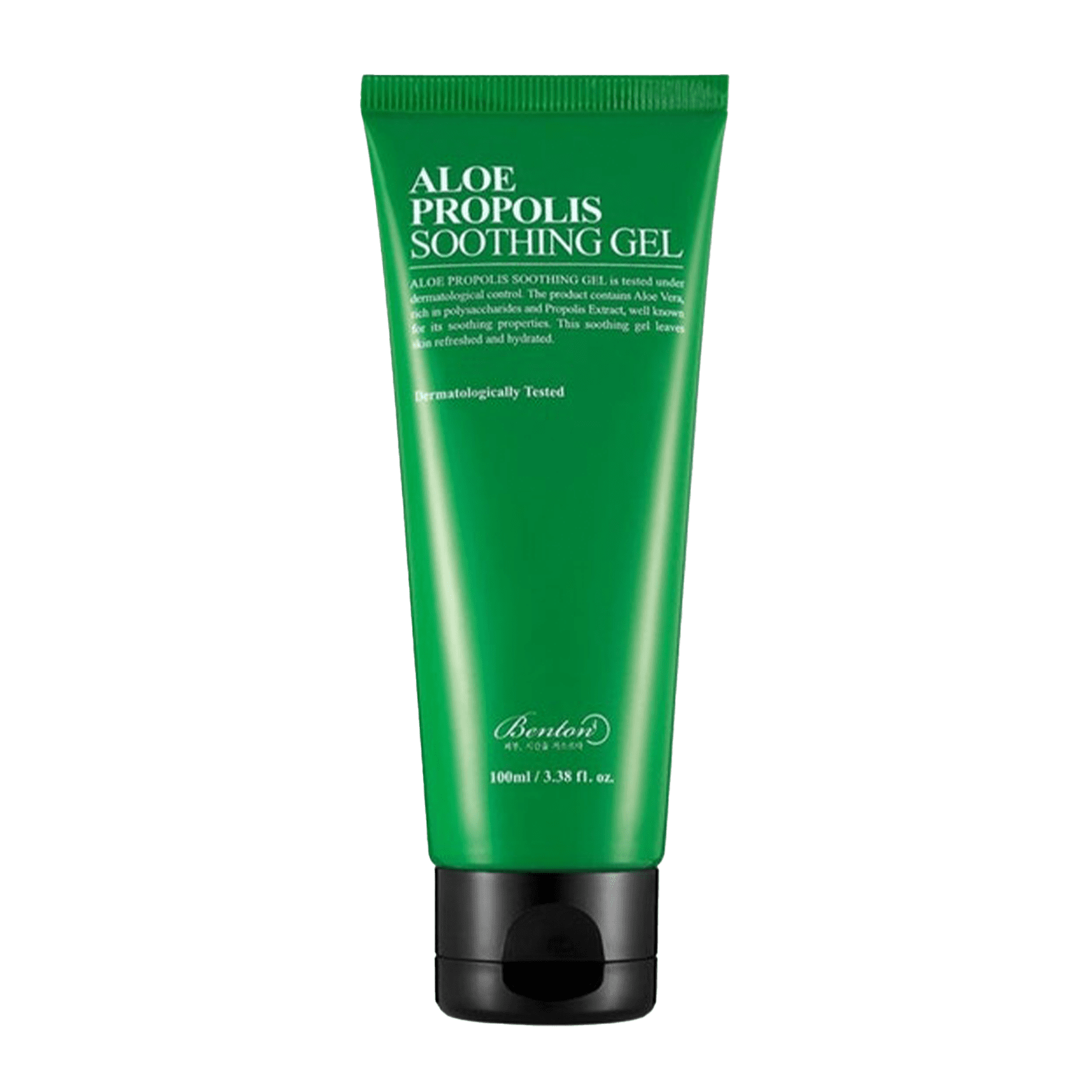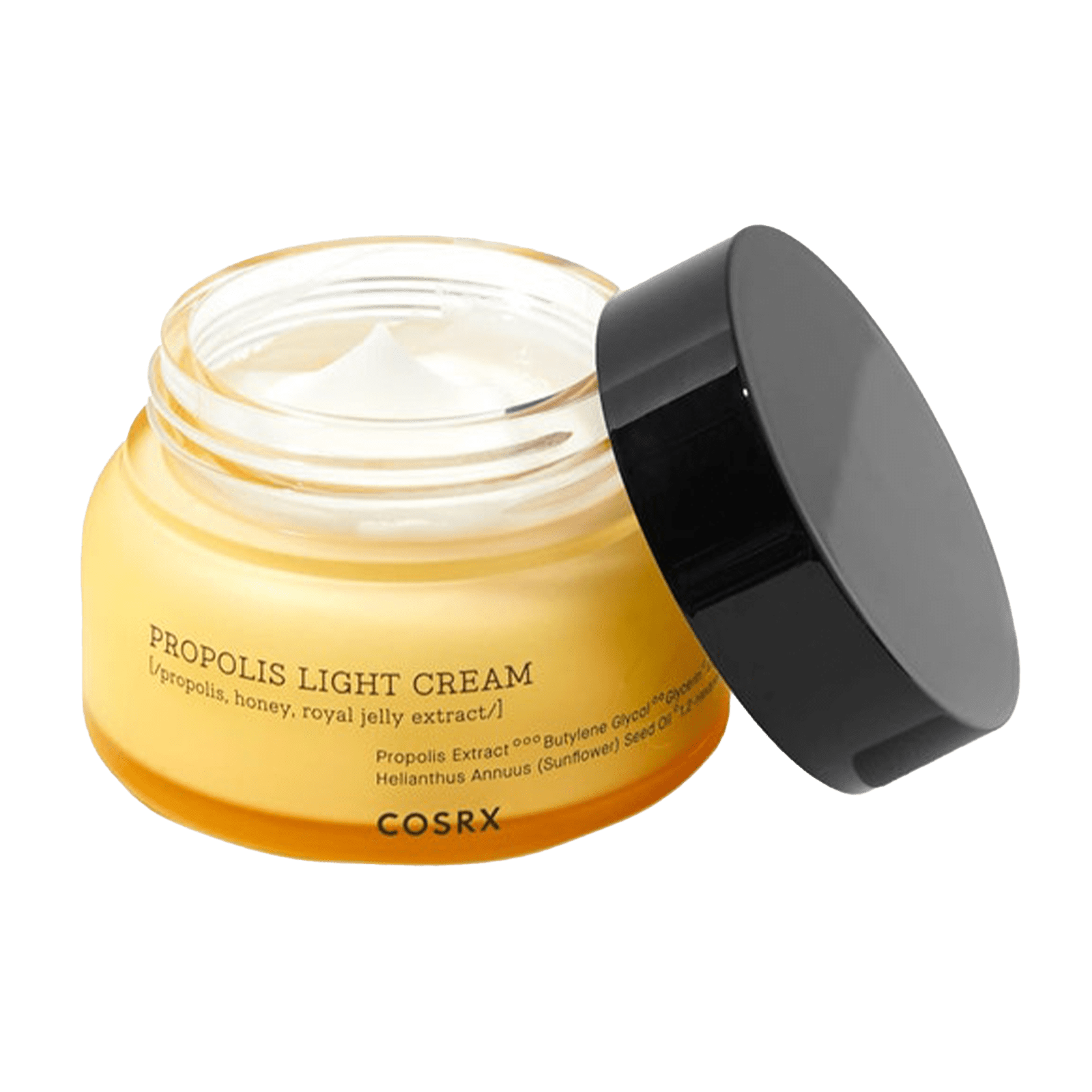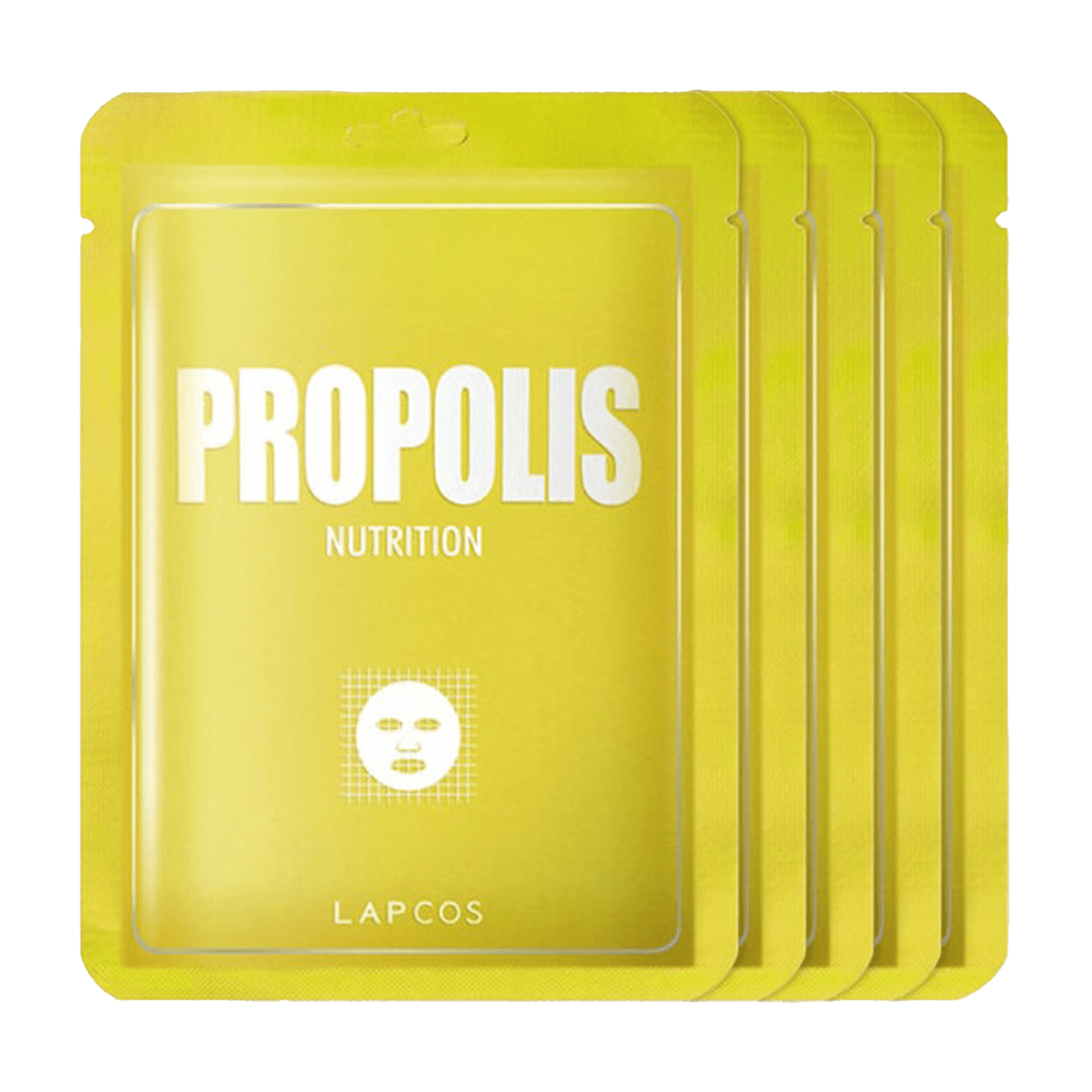Photo by RF Studio / Pexels
The benefits of propolis for skin are pretty impressive—it’s antibacterial, anti-fungal, antiviral, antioxidant, and anti-inflammatory. No wonder, then, that propolis is currently one of the buzziest beauty ingredients on social media. The hype is so strong that the propolis market is expected to reach $881.96 million by 2028.
But what exactly is propolis, where does it come from, and what does it do? Read on to learn more about the benefits of propolis for skin and health.
What is propolis?
If you thought the only healthy thing bees produced was honey, you were wrong. “Propolis is a substance produced by bees—a kind of resin with which they coat their hives to prevent viruses or bacteria from entering,” explains herbalist and naturopath María Luz Neila.
Also known as “bee glue”, propolis is basically what bees use to seal their hives. “In Greek, propolis means ‘defense of the city,’” notes skincare expert and pharmacist Elena Monje. “It is a bee product that bees collect from the secretions and resins that cover the buds of different plant species, such as poplar, chestnut, willow, oak, or birch. Its exact chemical composition depends on the plant source, but in general propolis is composed of resins, balsams, beeswax, essential oils, and pollen.”
Propolis is not honey, but it does share many of the sweet stuff’s unique healing, regenerating, and nourishing properties.. “It was traditionally used in ointments to treat wounds and sores for rapid healing,” she explains.
Though propolis has been used for millennia, its modern function remains the same. When something works, why change it? “It is currently used as a natural antibiotic and can be consumed both orally and topically,” Neila says. “It helps to strengthen the immune system and fight bacteria, viruses, and fungi.”
Propolis is pretty much one of those medicinal, natural ingredients that’s always good to have on hand—kind of like oregano oil or turmeric. It comes in plenty of forms: lozenges (which help reduces sore throat and irritation), moisturizers (to nourish and regenerate), tonics (to soothe and heal). It is also available in its purest form: propolis extract.
The benefits of propolis for skin
Although the benefits of propolis for skin are many and varied, Monje recommends it especially for those who have acne-prone skin thanks to its antimicrobial and anti-inflammatory properties. “Propolis also promotes the healing of wounds, cuts, and minor burns, and—thanks to its antioxidant properties—protects the skin against free radical damage to prevent premature aging. It’s truly multi-use.”
So, when exactly, then, should we apply our propolis-infused skincare products? “Since it has antioxidant properties, I recommend adding propolis into your morning routine—although it could also be used at night for its repairing power,” Niela says. However, she notes that it really depends what kind of skincare product you’re using. “Most cosmetics that include propolis among their active ingredients are formulated as a cream,” Niela says. “So the time of application depends on the format in which it is formulated. In general the logical order of your skincare routine would be: facial cleanser, eye contour, treatment serum, moisturizer, and sunscreen.”
Who should use propolis?
Almost anyone can use propolis, but if you’re allergic to bees or honey, proceed with caution. “People who have previously shown an allergic reaction to bee stings should avoid propolis,” warns Monje. “An allergic response can be observed as a reddening of the skin or a burning or itching. So, it’s advisable to carry out an allergy test before applying topically or consuming it orally,” she says.
If you’re not allergic, you can consider propolis like a protective shield for your skin. “As in beehives, propolis creates a protective layer on the skin that prevents bacteria from adhering while helping skin to regenerate,” Monje says. “If you use it to treat a scar, it will accelerate the scarring process and minimize the mark.” Monje also likes propolis for eczema—a condition that makes the skin dry, itchy, and inflamed. “Propolis washes mixed with water are very effective, she says. “Thus, the three main pillars of this active ingredient could be said to be protection, healing and regeneration.”
How should I consume propolis?
Of course, propolis has benefits that go beyond beauty. “It can be used in the form of sprays, tablets, syrups, and lozenges—especially for the treatment of throat conditions, which is one of its most typical uses,” Monje says.
Neila, on the other hand, recommends consuming propolis in its most common and traditional form: “The best known way to consume propolis is in the form of an infusion or extract diluted in water,” she says. “You can take it this way two or three times a day. It is also moisturizing—so if, for example, you have a sore throat, it will hydrate the dry parts of the mucous membranes, softening and soothing the irritation.”
This article was originally published on Vogue.com.
- These Skincare Products Are Thoughtfully-Sourced With Minimal Impact On The Planet
- Honey Garlic Is The Home Flu Remedy Everyone’s Trying This Winter
- What Is Hyaluronic Acid? Understanding Skincare’s Most Popular Ingredient
- This New York-Based Filipino Skincare Brand Is Founded On The Philosophy That Less Is More
